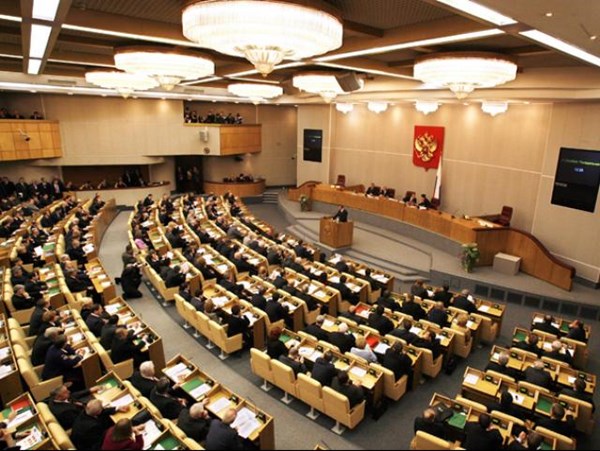Russian Parliament proposes fining media foreign agents $86,000
A bill has been presented in the Russian State Duma which would introduce fines for violations permitted by foreign media outlets that are identified as foreign agents. The maximum punishment is a fine of 5 million rubles (roughly $86,000).
The bill was placed on the State Duma’s website.
The bill was put forward by Andrey Klishas, head of the Federation Committee on Constitutional Legislation and State-Building, and Pavel Krasheninnikov, chairman of the State Duma Committee on Civil Criminal Arbitration and Procedural Legislation.
Media foreign agents would be fined 5 million rubles for gross violations permitted by the legal entity. This is understood to be a repeated (more than twice a year) violation of Russian media law and violation of legislation on media foreign agents. Physical entities may be fined 100,000 rubles and placed under administrative arrest for 15 days. Officials may be fined up to 200,000 rubles.
For less serious violations of the law, the lawmakers proposed that citizens be fined up to 10,000 rubles, officials up to 50,000 rubles, and legal entities up to 500,000 rubles. For repeat violations, the fines for officials and legal entities will be doubled, and fines for citizens will grow by a factor of five, to 50,000 rubles.
The law on media foreign agents was adopted by the State Duma on November 15, ratified by the Federation Council on November 22, and signed by President Vladimir Putin on November 29. Media will be added to the foreign agents register by the Russian Ministry of Justice. According to the law, media outlets that are recognized as foreign agents must place information about this on their social network accounts, in their broadcasts, and on their websites.
This law was Russia’s “mirror response” to the US Justice Ministry’s demand that the TV channel Russia Today register as a foreign agent in the US. The State Duma considered it “oppression” of Russian media. The US did not, however, consider Russia’s response to be a true mirror response, and instead the Department of State sees it as a further threat to freedom of speech in Russia.
